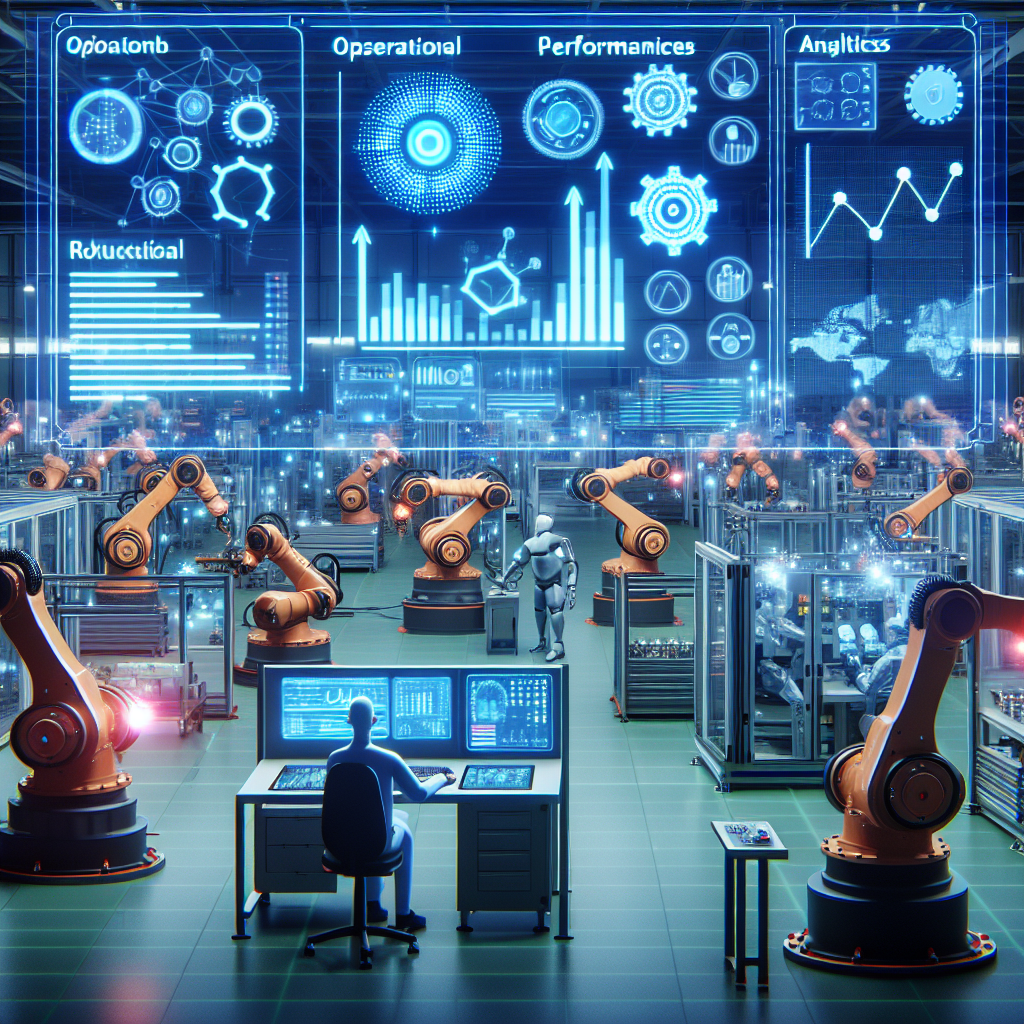Artificial Intelligence (AI) and digital transformation have been revolutionizing the manufacturing industry in recent years. These technologies have the potential to streamline operations, increase efficiency, and improve overall productivity in manufacturing processes. From predictive maintenance to quality control, AI and digital transformation are reshaping the way manufacturers operate.
AI in Manufacturing
AI is being increasingly utilized in manufacturing to optimize processes and enhance decision-making. One of the key areas where AI is making a significant impact is in predictive maintenance. By analyzing data from sensors and equipment, AI algorithms can predict when machines are likely to fail and recommend maintenance actions to prevent costly downtime. This proactive approach to maintenance helps manufacturers save time and money by avoiding unplanned outages.
AI is also being used to improve quality control in manufacturing. Machine learning algorithms can analyze images and detect defects in products with a high level of accuracy, reducing the need for manual inspections. This not only improves product quality but also reduces the likelihood of defective products reaching customers.
In addition to predictive maintenance and quality control, AI is also being applied in supply chain management. By analyzing data from suppliers, manufacturers can optimize inventory levels, reduce lead times, and improve overall efficiency in the supply chain. This enables manufacturers to respond more quickly to changes in demand and reduce costs associated with excess inventory.
Digital Transformation in Manufacturing
Digital transformation is another key trend in the manufacturing industry, with companies leveraging technology to drive innovation and competitiveness. The adoption of digital technologies such as the Internet of Things (IoT), cloud computing, and big data analytics is transforming traditional manufacturing processes into smart, connected systems.
One of the main benefits of digital transformation in manufacturing is improved visibility and transparency across the supply chain. By connecting machines, sensors, and other devices to the internet, manufacturers can collect real-time data on production processes and track the movement of raw materials and finished goods. This data can be used to optimize production schedules, improve quality control, and make informed decisions about inventory management.
Another key aspect of digital transformation in manufacturing is the integration of data analytics and artificial intelligence. By collecting and analyzing data from various sources, manufacturers can gain valuable insights into their operations and identify opportunities for improvement. For example, predictive analytics can help manufacturers forecast demand, optimize production schedules, and reduce waste.
FAQs
Q: What are some of the challenges of implementing AI in manufacturing?
A: One of the main challenges of implementing AI in manufacturing is the lack of skilled personnel. Many manufacturers do not have the expertise or resources to develop and deploy AI algorithms within their organizations. Additionally, integrating AI systems with existing manufacturing processes can be complex and time-consuming.
Q: How can manufacturers ensure data security when implementing digital transformation?
A: Data security is a critical concern for manufacturers implementing digital transformation. To ensure the security of data, manufacturers should invest in secure communication protocols, encryption technologies, and access control mechanisms. Regular security audits and employee training programs can also help protect sensitive information from cyber threats.
Q: What are some of the benefits of digital transformation in manufacturing?
A: Digital transformation in manufacturing offers several benefits, including increased productivity, reduced downtime, improved quality control, and enhanced decision-making. By leveraging digital technologies, manufacturers can optimize their operations, respond more quickly to changes in demand, and gain a competitive edge in the market.
In conclusion, AI and digital transformation are reshaping the manufacturing industry by optimizing processes, improving efficiency, and driving innovation. By leveraging these technologies, manufacturers can enhance their competitiveness, reduce costs, and deliver high-quality products to customers. As the manufacturing landscape continues to evolve, companies that embrace AI and digital transformation will be well-positioned to succeed in the future.

